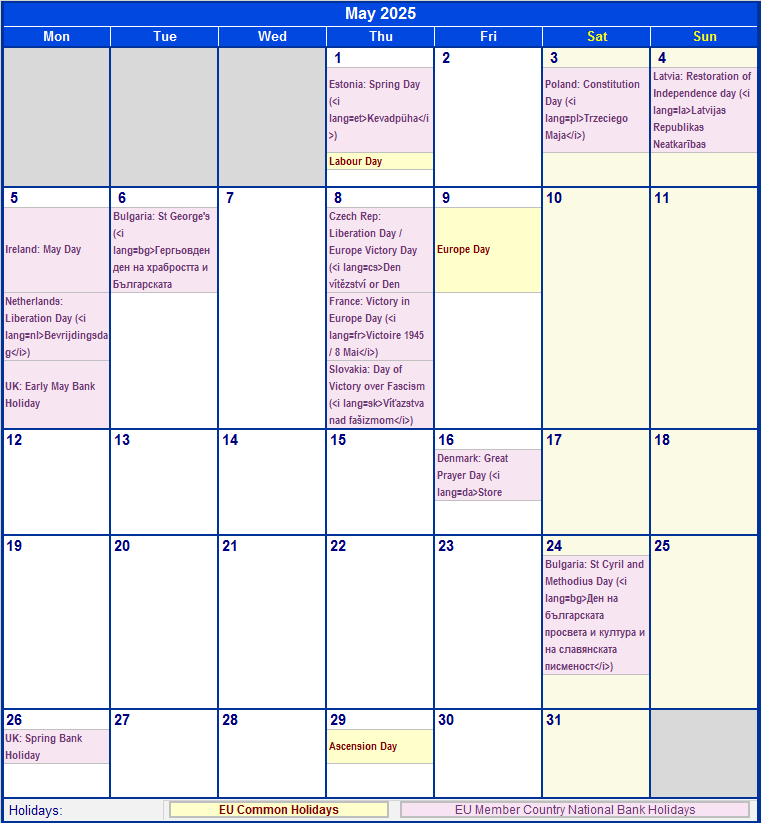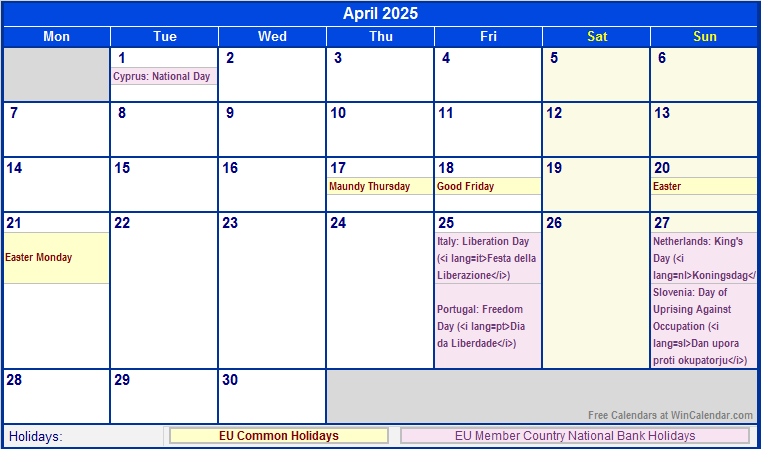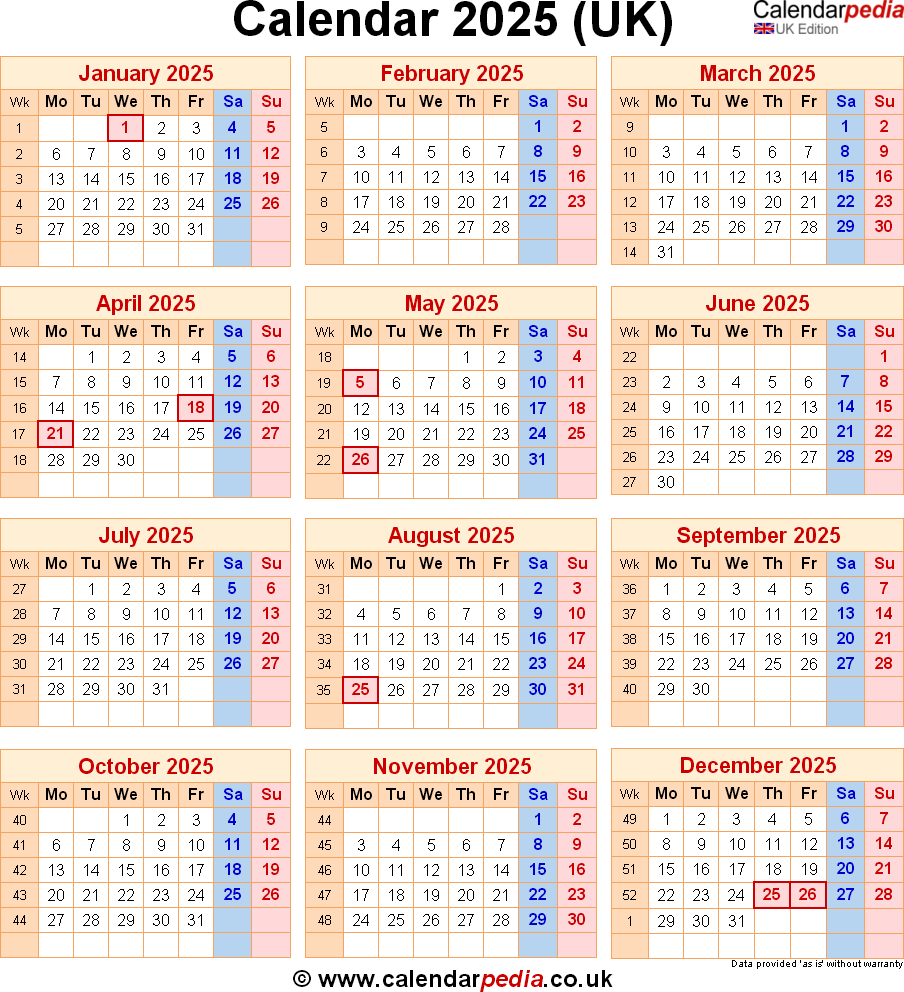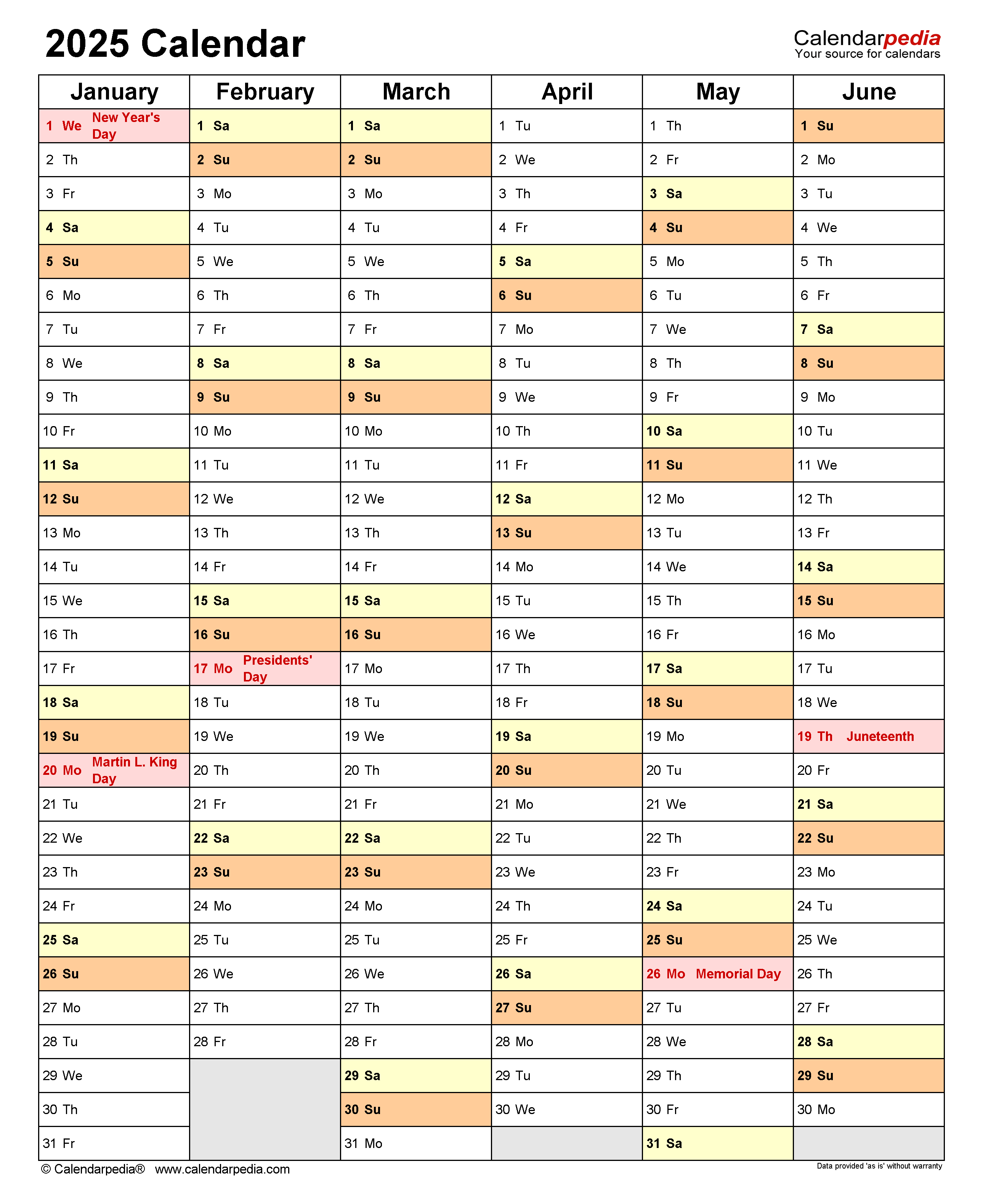Navigating the European Commission’s Holiday Calendar: A Comprehensive Guide for 2025
Related Articles: Navigating the European Commission’s Holiday Calendar: A Comprehensive Guide for 2025
Introduction
With great pleasure, we will explore the intriguing topic related to Navigating the European Commission’s Holiday Calendar: A Comprehensive Guide for 2025. Let’s weave interesting information and offer fresh perspectives to the readers.
Table of Content
Navigating the European Commission’s Holiday Calendar: A Comprehensive Guide for 2025

The European Commission, as the executive branch of the European Union, operates within a framework of established holidays. These holidays are designed to provide employees with time for rest, relaxation, and personal commitments, fostering a healthy work-life balance. Understanding the intricacies of the European Commission’s holiday calendar is crucial for both employees and stakeholders who interact with the institution. This article aims to provide a comprehensive overview of the holiday calendar for 2025, highlighting key aspects, benefits, and practical considerations.
Understanding the Framework:
The European Commission’s holiday calendar is governed by a set of internal regulations, including the Staff Regulations of Officials and the Conditions of Employment of Other Servants of the European Union. These regulations outline the entitlement to holidays, public holidays, and leave periods for various categories of employees.
Key Components of the Holiday Calendar:
- Annual Leave: All employees of the European Commission are entitled to a minimum of 20 working days of annual leave, which can be taken in separate blocks or cumulatively. This leave period provides employees with the opportunity to unwind, recharge, and engage in personal activities outside of work.
- Public Holidays: The European Commission observes a specific set of public holidays, which are determined by the host country of each institution’s headquarters. These holidays are typically based on national traditions and religious celebrations. For example, the Commission’s headquarters in Brussels observes public holidays such as New Year’s Day, Easter Monday, and Ascension Day.
- Other Leave Entitlements: Beyond annual leave and public holidays, employees may be eligible for additional leave, such as sick leave, parental leave, and study leave. These entitlements are designed to accommodate various personal circumstances and support employees’ well-being.
Factors Influencing the Holiday Calendar:
- Host Country Regulations: The specific public holidays observed by the European Commission are largely influenced by the regulations of the host country where each institution is based.
- Internal Policies: The European Commission’s internal policies may also dictate specific leave arrangements, such as the possibility of carrying over unused leave or the requirement for advance notification of leave requests.
- Operational Needs: The Commission’s operational needs may influence the timing of holidays, especially during periods of heightened activity or when specific projects require a dedicated workforce.
Benefits of a Structured Holiday Calendar:
- Work-Life Balance: A clearly defined holiday calendar promotes a healthy work-life balance by ensuring employees have designated time for rest and personal pursuits.
- Productivity Enhancement: Regular breaks and time off can enhance employee productivity by reducing stress, improving focus, and fostering creativity.
- Employee Satisfaction: A comprehensive holiday system contributes to employee satisfaction by acknowledging the importance of personal time and fostering a positive work environment.
- Operational Continuity: While holidays may impact daily operations, the Commission’s internal policies and arrangements ensure continuity of essential services through planning and delegation.
Navigating the 2025 Holiday Calendar:
To navigate the 2025 holiday calendar effectively, employees and stakeholders should:
- Consult Official Sources: Refer to the European Commission’s official website and internal communications for the most up-to-date information on holiday dates and policies.
- Plan Ahead: Plan leave requests in advance, considering deadlines, project timelines, and the availability of colleagues.
- Communicate Effectively: Communicate leave plans with colleagues and supervisors to ensure smooth workflow and minimize disruption.
- Respect Colleagues’ Time Off: Respect colleagues’ leave periods and avoid scheduling unnecessary meetings or tasks during their absence.
FAQs Regarding European Commission Holidays in 2025:
1. What are the public holidays observed by the European Commission in 2025?
The specific public holidays observed by the Commission will vary depending on the host country of each institution. However, common public holidays across most European countries include New Year’s Day, Easter Monday, Ascension Day, Whit Monday, Christmas Day, and Boxing Day.
2. How much annual leave am I entitled to in 2025?
All employees of the European Commission are entitled to a minimum of 20 working days of annual leave in 2025. This entitlement may vary depending on seniority and specific contractual agreements.
3. Can I carry over unused leave to the following year?
The European Commission’s internal policies may allow for the carrying over of unused leave under certain circumstances. It’s crucial to consult the relevant regulations and communicate with your supervisor for specific guidance.
4. How do I request leave in 2025?
The European Commission typically has a formal leave request process that involves submitting a request through a designated online system or through your supervisor.
5. What are the deadlines for submitting leave requests in 2025?
The deadlines for submitting leave requests may vary depending on the Commission’s internal policies and the specific type of leave being requested. Consult official guidelines or your supervisor for detailed information.
Tips for Managing Holidays Effectively:
- Plan Your Leave Strategically: Consider peak seasons, project deadlines, and the availability of colleagues when planning your leave.
- Communicate Clearly: Inform your supervisor and colleagues about your planned leave well in advance to ensure smooth workflow and minimize disruption.
- Utilize Leave for Rest and Recharge: Make the most of your leave by engaging in activities that promote rest, relaxation, and personal growth.
- Stay Connected When Necessary: While on leave, stay connected to essential communications and be available for urgent matters, if necessary.
Conclusion:
The European Commission’s holiday calendar is a vital aspect of the institution’s operational framework, contributing to employee well-being, productivity, and overall satisfaction. By understanding the key components of the calendar, navigating the regulations effectively, and following best practices for leave management, both employees and stakeholders can contribute to a seamless and efficient work environment while respecting the importance of personal time and rest.








Closure
Thus, we hope this article has provided valuable insights into Navigating the European Commission’s Holiday Calendar: A Comprehensive Guide for 2025. We hope you find this article informative and beneficial. See you in our next article!
